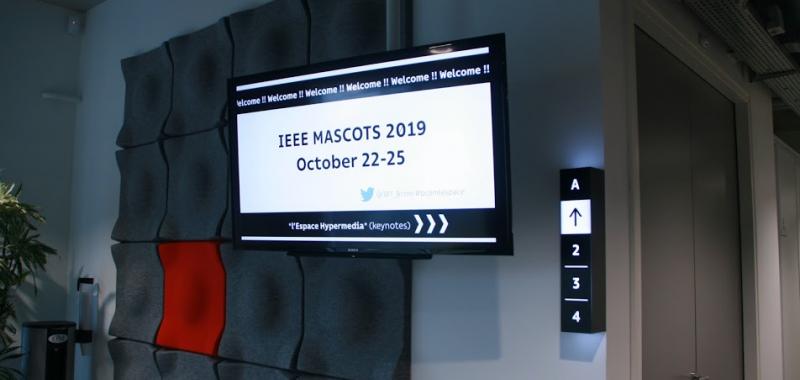
Saad Zia Sheikh, a PhD student at the Department of Electrical Engineering, Syed Babar Ali School of Science and Engineering presented his paper at the 27th Annual IEEE International Symposium on the Modeling, Analysis, and Simulation of Computer and Telecommunication Systems (MASCOTS ’19) held in Rennes, France from October 22 to 24, 2019.
Saad’s paper is titled, ‘An Improved Model for System-Level Energy Minimization on Real-Time Systems.’ The high quality of Saad’s research can be gauged by the fact that the acceptance rate at MASCOTS ’19 was approximately 30%.
Saad is working toward his PhD under the supervision of LUMS Electrical Engineering faculty, Dr. Adeel Pasha on ‘Cache-Aware Energy Efficient Scheduling for Multicore Real-Time Systems.’
Abstract: Energy-efficient scheduling has become an essential branch in the evolution of real-time systems due to requirements for reliability and portability. Such scheduling algorithms exploit the varying voltage/frequency capability of a processor to reduce its energy consumption. However, most of these algorithms assume an inaccurate linear correlation between memory latency and core frequency. To make the matter worse, the inclusion of caches has tarnished the predictability of such systems while also increasing the total energy consumption. Therefore, improved system and task models are crucial for further progression in this domain. In this paper, we propose improvements to existing models in order to incorporate the above-mentioned complexities. We then propose techniques to minimize core-, cache- and system-level energy consumption. Extensive simulations demonstrate the effectiveness of our approach and the impact each proposed technique has on total energy consumption of the processor.
IEEE Reference format: S. Z. Sheikh and M. A. Pasha, "An Improved Model for System-Level Energy Minimization on Real-Time Systems," 2019 IEEE 27th International Symposium on Modeling, Analysis, and Simulation of Computer and Telecommunication Systems (MASCOTS), Rennes, FR, 2019, pp. 276-282. doi: 10.1109/MASCOTS.2019.00039








